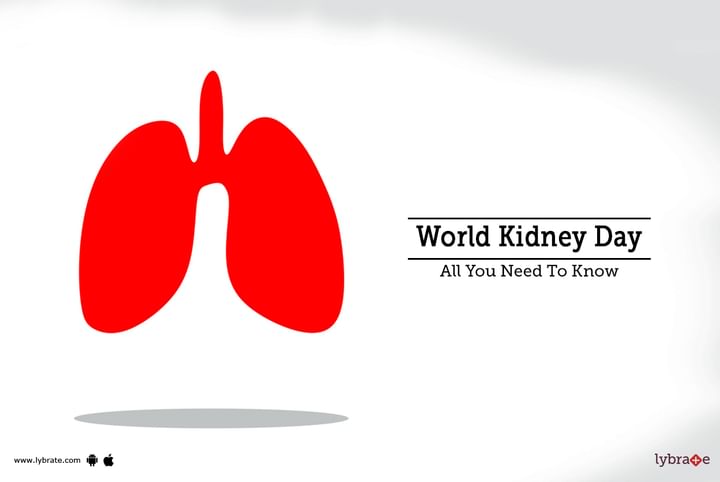World Kidney Day: All You Need To Know About Kidney Failure
World Kidney Day is observed on 10th March every year to raise awareness & the importance of kidneys to our health and to reduce the impact of kidney disease and its associated health problems worldwide.
Kidneys play an incredibly important role in filtering waste from your blood and therefore maintaining the healthy functioning of the body. Blood pressure, production of red blood cells, and electrolyte balance, all of these are regulated by the proper functioning of the kidneys.
Kidney failure is the condition where the kidney is incapable of removing these toxins from the blood effectively. The factors that can play into damaging your kidneys health are:
-
Kidney trauma
-
Severe dehydration
-
Toxic exposure to environmental pollutants or certain medications
-
Certain acute and chronic diseases
-
Insufficient blood flow to the kidneys
Early Signs Of Kidney Failure
Symptoms of early-stage kidney disease may be difficult to pinpoint. If you experience early signs of kidney disease, they may include:
-
Shortness of breath
-
Swelling in limbs
-
Decreased urine output
Symptoms of Kidney Failure
-
Seizures
-
Confusion
-
Persistent nausea
-
Coma
-
Drowsiness or fatigue
-
Unexplained shortness of breath
-
Pain or pressure in your chest
-
Swelling of your legs, ankles, and feet from retention of fluids caused by the failure of the kidneys to eliminate water waste.
Causes of Kidney Failure
Kidney failure can be the result of several conditions or causes. The two most common causes are high blood pressure and diabetes.
Impaired blood flow to the kidneys
Diseases and conditions that may slow blood flow to the kidneys and lead to kidney injury include:
-
Blood or fluid loss
-
Blood pressure medications
-
Heart attack
-
Heart disease
-
Infection
-
Liver failure
-
Use of aspirin, ibuprofen, naproxen sodium, or related drugs
-
Severe allergic reaction (anaphylaxis)
-
Severe burns
-
Severe dehydration
-
Damage to the kidneys -
These diseases, conditions, and agents may damage the kidneys and lead to acute kidney failure:
-
Blood clots in the veins and arteries in and around the kidneys
-
Cholesterol deposits that block blood flow in the kidneys
-
Glomerulonephritis, inflammation of the tiny filters in the kidneys (glomeruli)
-
The hemolytic uremic syndrome is a condition that results from premature destruction of red blood cells
-
Infection
-
Lupus is an immune system disorder causing glomerulonephritis
-
Medications, such as certain chemotherapy drugs, antibiotics, and dyes used during imaging tests
-
A scleroderma is a group of rare diseases affecting the skin and connective tissues
-
Thrombotic thrombocytopenic purpura, a rare blood disorder
-
Toxins, such as alcohol, heavy metals, and cocaine
-
Muscle tissue breakdown (rhabdomyolysis) leads to kidney damage caused by toxins from muscle tissue destruction
Breakdown of tumor cells (tumor lysis syndrome), leads to the release of toxins that can cause kidney injury.
Urine Blockage in the kidneys -
Diseases and conditions that block the passage of urine out of the body (urinary obstructions) and can lead to acute kidney injury include:
-
Bladder cancer
-
Blood clots in the urinary tract
-
Cervical cancer
-
Colon cancer
-
Enlarged prostate
-
Kidney stones
-
Nerve damage involving the nerves that control the bladder
-
Prostate cancer



+1.svg)
